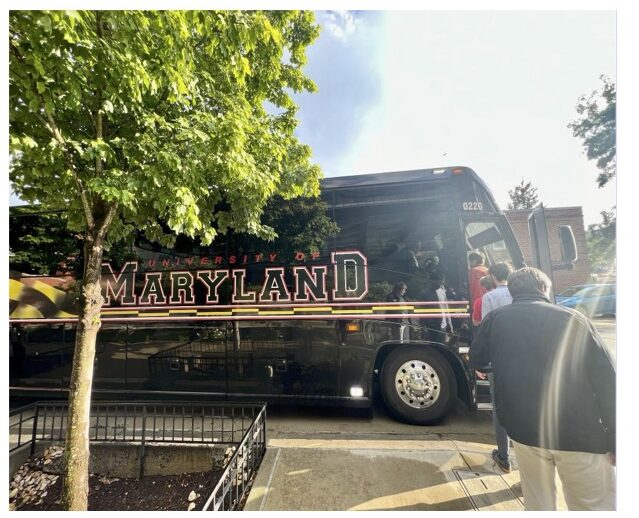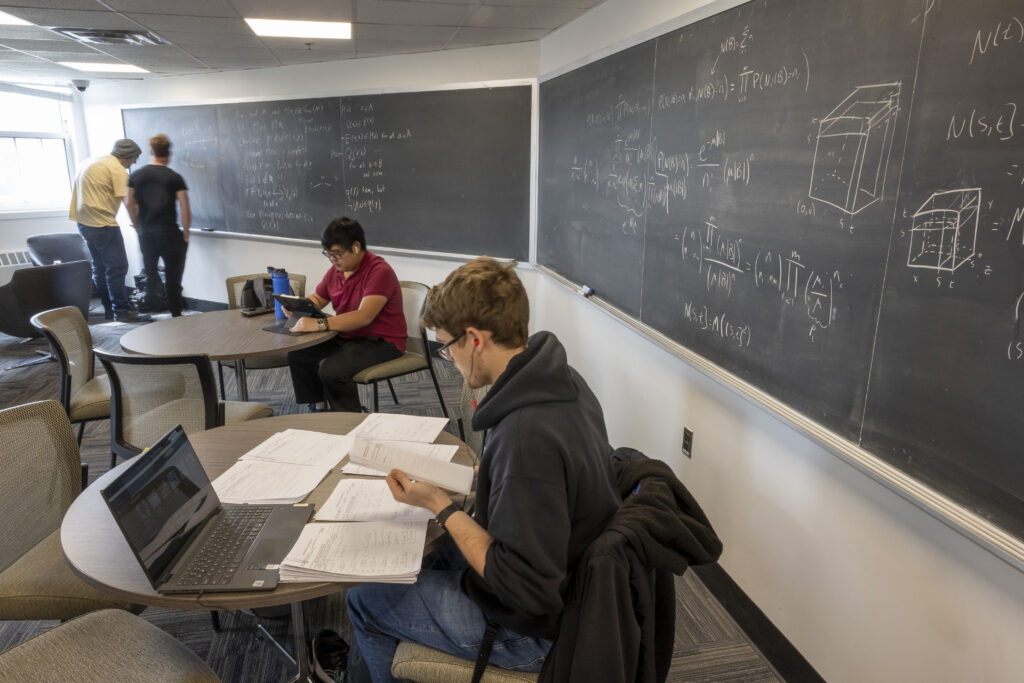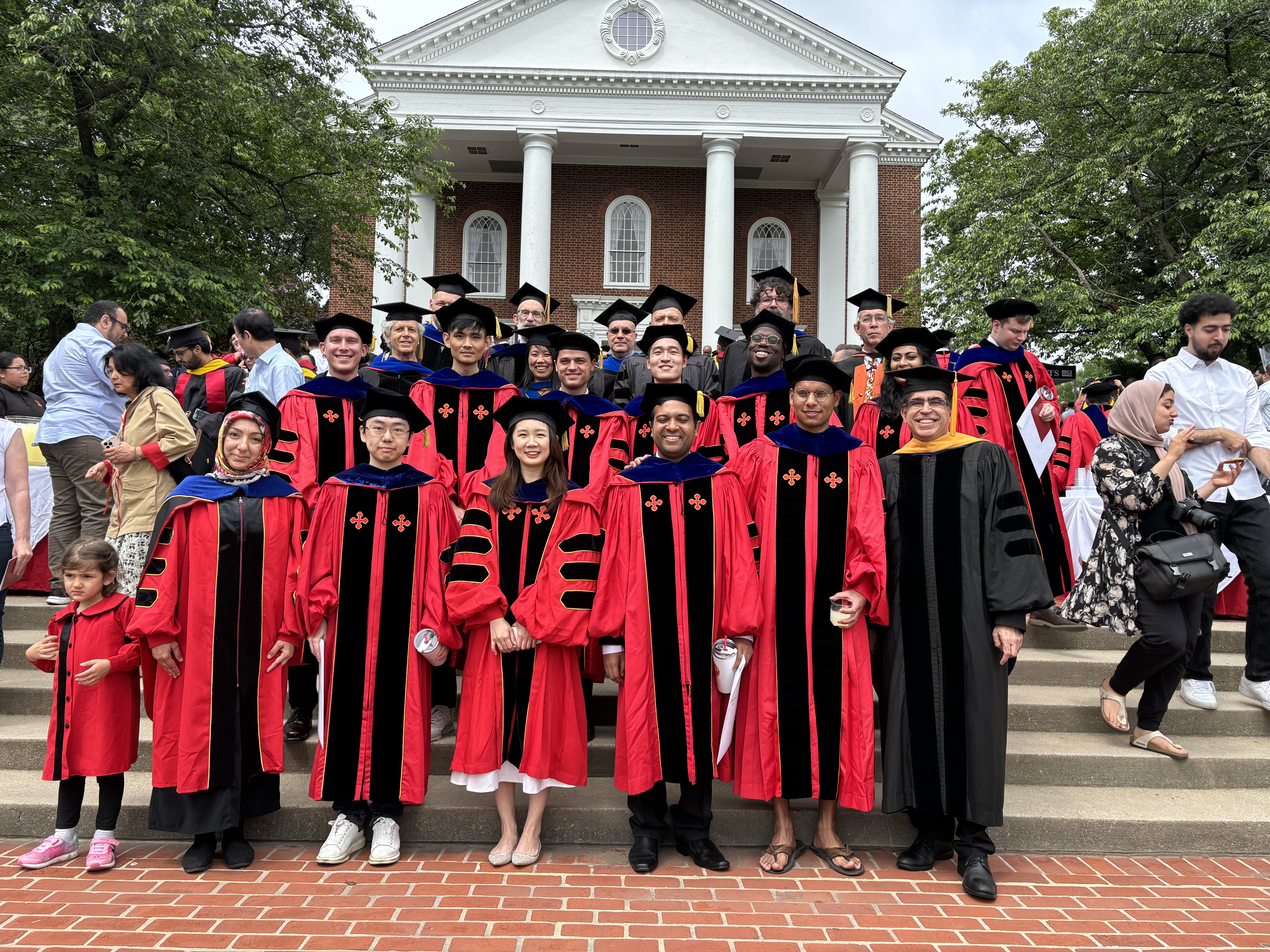Problem-solving, logical thinking, and decision-making skills — these are the attributes that will set you apart from other graduates when you get a degree from University of Maryland, College Park.
Those who currently hold bachelor’s degrees in mathematics looking to advance their education are eligible to apply for the PhD programmes at University of Maryland (UMD). A master’s degree is not required to begin your PhD studies. The more advanced your degree, the more opportunities await; UMD can help you reach your goals whether they lie in industry, academia, or government.
UMD’s Department of Mathematics offers three PhD programmes: Mathematics (MATH), Mathematical Statistics (STAT), and Applied Mathematics & Statistics, and Scientific Computation (AMSC). You can take courses in all three and it’s easy to transfer from one programme to another. All three programmes offer financial support for full-time PhD students in the form of employment at the university and tuition remission for classes.
The PhD in MATH offers students a range of topics to study including Algebra and Number Theory, Complex Analysis, Logic, Numerical Analysis, Ordinary Differential Equations and Dynamical Systems, Partial Differential Equations, Real and Functional Analysis, Statistics, Probability, and Topology and Geometry. Current international student, Emilio Dominguez from Mexico, says, “One big factor for me was that I knew the areas of mathematics I liked but I didn’t know the specific topic. Luckily, the programme is structured to give me time to complete a few years of coursework before making a final decision for my research.”
Dominguez is hoping to advance to candidacy this academic year by studying Intersection Theory. “Although the programme is rigorous, the environment of the programme is not competitive,” he adds. “Most students want to help each other. My cohort is really open to working with each other and no one is ‘protective of their knowledge.’”

Source: University of Maryland
The PhD in STAT bridges tradition and innovation. You’ll receive rigorous training in both classical and modern theory and methods in statistics, covering broad areas of statistics, machine learning and data science. These range from survey statistics, census statistics, data linkage, survival analysis to empirical processes, learning theory, Bayesian statistics, network analysis, geometry and statistics, and other modern topics such as foundational aspects of deep learning.
For students interested in interdisciplinary research, the PhD in AMSC provides a blend of opportunities. There are three concentrations: Applied Mathematics, Applied Statistics, and Scientific Computation. The Applied Mathematics concentration expands on the mathematical foundation of applied sciences and engineering, while Applied Statistics specialises in using statistics to develop mathematical and computing skills for modern research. Scientific Computation, on the other hand, emphasises the application of computation to physical sciences, life sciences, engineering, business, and social sciences.

Source: University of Maryland
For AMSC graduate Tengfei Su, the AMSC PhD degree was a crucial step in helping him land a role as a Quantitative Associate at Wells Fargo. His thesis, “Low-Rank Solution Methods for Discrete Parametrized Partial Differential Equations,” specialised in numerical methods of PDEs, but this was not the only topic he studied during his tenure in the programme. He had flexibility in taking courses that suited his interests, which challenged him to think in novel ways.
“They prepared me not only for the research but also for the job application. Besides the mathematical tools and knowledge, the logical thinking and problem-solving abilities, as well as communication skills (both verbal and written) that one gets from the grad school experience, are also highly rewarding for my current position,” he says.
With his AMSC degree, Su was confident to seize opportunities within and beyond academia. “I got to know the position [I currently hold] because [Wells Fargo] sent people to give a presentation about it in the UMD Math Department,” he says. “They offer a pretty well-structured programme of training and rotations, which is very helpful for people like me without much financial background. I have enjoyed the real-world applications where you can see the impact of your work and how it fulfills the business requirements.”
Current AMSC student Victoria Whitley saw how versatile the degree was from the start. “It seemed that the AMSC programme had a lot of areas where I could apply my research interests,” she says. “I could head towards mechanical engineering, meteorology, or stay more within the math and computer science departments. I knew no matter where I focused my interests, I would find faculty who would support me in whatever I found exciting.”
Today, Whitley is focusing on both computational and experimental fluid dynamics as a broad category. “After coming to UMD, I was able to expand my knowledge and interest in the computational side of things through courses that really showed me all I could do within this one field,” she says. “I love that fluid mechanics is used in almost every aspect of our life, from weather forecasting and submarines to standard measurements and blood circulation.”
In 2022, the University of Maryland opened the Brin Mathematics Research Centre (Brin MRC), a hub for activities in all areas of pure and applied mathematics and statistics. As the venue for programmes, conferences, workshops, special lecture series, and summer schools, this is where UMD students can interact with some of the sector’s top minds. Dominguez is currently working as a camp counsellor for the Brin Maryland Mathematics Camp and is mentoring high school students interested in mathematics.

University of Maryland students and faculty attending a Brin MRC event. Source: University of Maryland
Outside of UMD, students can also explore the best of nearby Washington, DC. With easy access to research facilities, restaurants, retail, performing and visual arts spaces, historical sites, and nature trails, the nation’s capital provides a wealth of opportunities and entertainment for graduate students.
“I have really enjoyed visiting some of the museums that I never got the chance to see on prior trips or haven’t seen as an adult,” Whitley says.
Shashank Sule, an international student from Mumbai, India, loves going around DC when he’s not working on problems related to computational harmonic analysis and machine learning. “I love cooking (I can make a mean carbonara), and going around DC, especially for stand-up, DC spirits games, and the art galleries,” he says.

Graduate students from all three programmes (MATH, STAT, & AMSC) enjoyed a day in DC in May 2024. The location of the photo above is the National Air and Space Museum. Source: University of Maryland
Sule’s experience at the University of Maryland speaks to the Department of Mathematics’s hopes for its PhD students: to provide a challenging and rewarding education to a diverse cohort of mathematicians, fostered through coursework, research, and community networks beyond the doors of the Math building.
Follow the Department of Mathematics for more at the University of Maryland on X.










